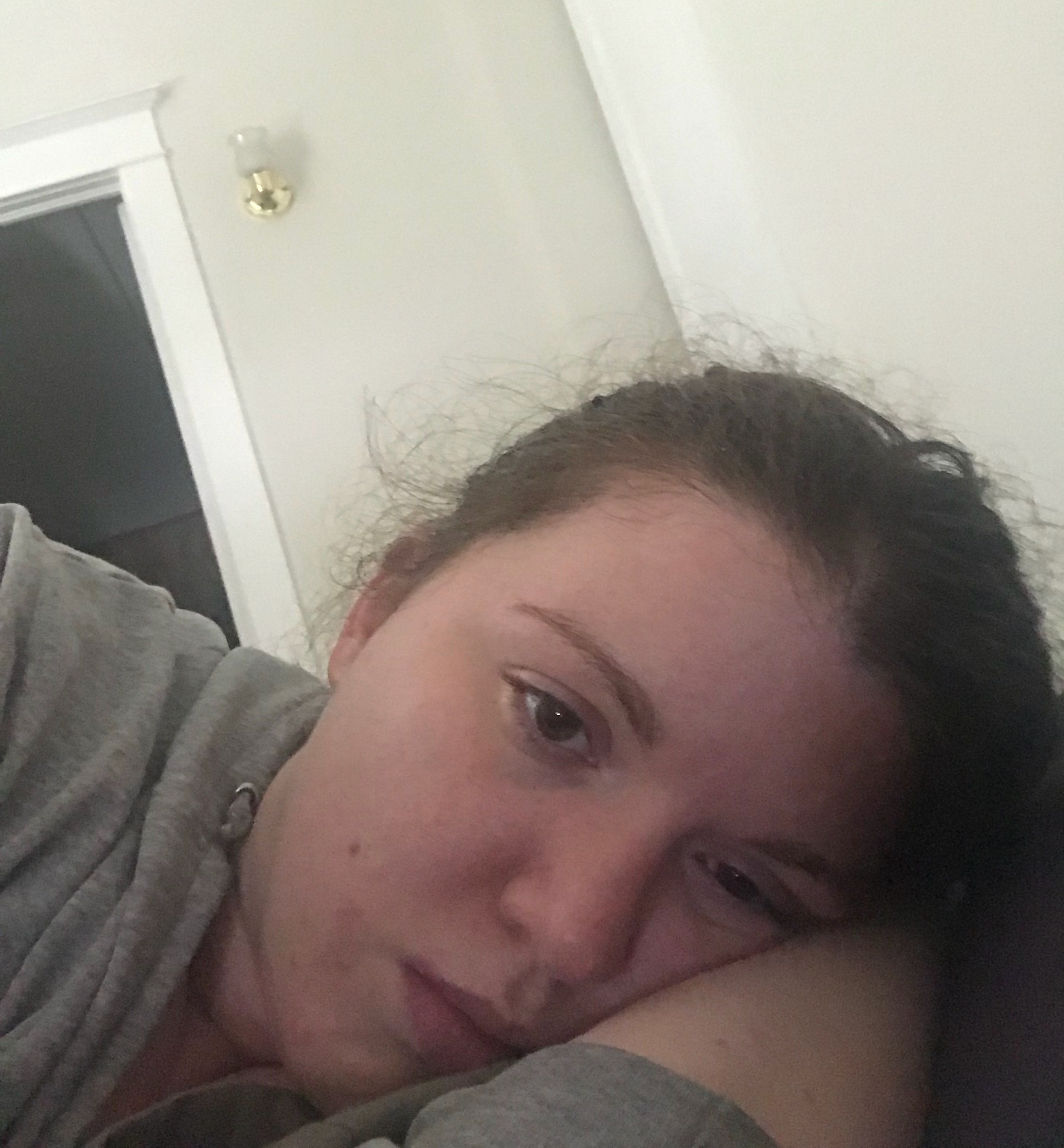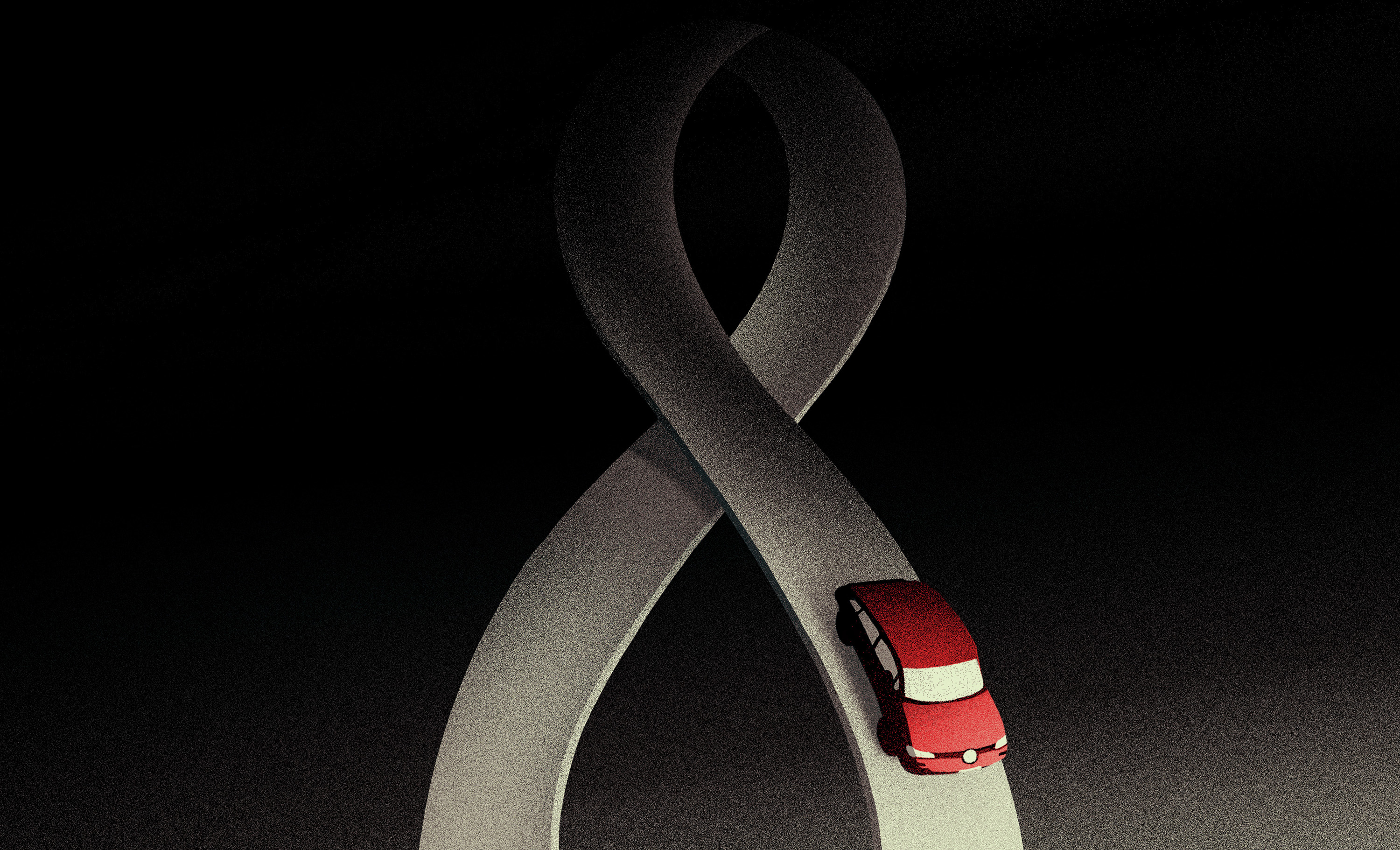My First Drive After Cancer
Half a mile from home, on my very first drive since my doctor forbade me from getting behind the wheel a month previously, I was cut off while in the middle of a wide right turn.
I slammed on the brakes and just barely let the beat-up old F-150 into my lane without incident. My red Volkswagen Golf SportWagen TDI, Jolene, escaped unscathed, but I was shaken up. I wasn't expecting it at all, which is weird.
For years I thought I had developed a sixth sense for when bad drivers were about to act badly. Driving is a huge part of my life. I got my learner's permit the day I turned 14 years and 9 months old exactly—the earliest I could get it in Michigan. At Autoblog and then Jalopnik, I drove the kinds of cars most people dream about. The freedom I gained from driving, and my love of cars, has been a central hub in my life. And then, I got cancer.
When you're young and healthy, and then suddenly not, you realize just how fragile you really are. While my friends in their late 20s and early 30s are just starting to think about self-preservation in the form of trendy cleanses and cutting back on the weeknight beers, I am shackled to monthly blood tests and nerve-wracking body scans.
Mainly, you lose time. Thyroid cancer—which I've been dealing with for the past year-and-a-half—steals time away bit by bit. Radiation leaves you exhausted as your body struggles to make sense of what is happening. The chemicals that control how the body uses energy are constantly out of whack, leaving you a slow motion version of yourself. Every system in your body is affected. And while dealing with muscle cramps that felt like they might break bones or running out of breath after climbing just three steps, everyone tells you you have the "easy" cancer.
This cancer, which you statistically shouldn't have in the first place, is quite curable, they say. It's the "good" cancer and you're "lucky."
But you don't feel lucky, even as the nurses knowingly look at your chart and tell you how much worse it could be.
Every time I was sick this past year, doctors had to check for more cancer. Only now, they were checking for the much worse cancers I kept hearing I was lucky to avoid. And I was sick a lot.
I came down with the impossibly old-timey condition of pleurisy, which set off a flurry of contrast chest scans which I'm required to keep up every six months the next three years. I was told to check my lymph nodes for swelling every few days, which has lead to me pressing around my scalp and neck so often I look like I'm worried my head is going to float away.
I got a sore throat at a Jalopnik reader event that sent me spiraling into my very first panic attack, though thankfully I don't think any of our guests noticed. But who could blame me? In the last year, I've been scanned for lung cancer, bone cancer and uterine cancer on top of thyroid cancer follow ups. Due to having a rarer form of thyroid cancer, mine was caught later and more likely to spread.
While I'm always told the odds are good I don't have more cancer, that's what I was told about my thyroid. Every one of my doctors was just being "safe," but I had never been more scared in my life.
Needless to say, I haven't been driving much over the past year.

My latest scan came up clear for thyroid cancer, so I'm now technically in remission, but I'll need to be rescanned every year for the next three or four years. To even get that scan, doctors warned me that they would need to take me off my thyroid medicine to get a clear reading of what my body was doing on its own. That medicine replaces the thyroid hormone that you need to live, to function for weeks at a time. I was warned that without the medicine, things would get difficult. I would have to stay at home. I would have to go on a special diet, so as soon as I'm good and miserable and sore, eating became harder. Every small action, normally taken for granted, became weighty with effort. After a year of navigating this maze all I wanted was my life back. But when that will happen, or even if, no one can really say.
I raged against being forced into uselessness until I finally just gave up. I had to. I was so full of pain and frustration and fear that I couldn't fight to keep control anymore. Instead I let my sickness spin a cocoon around me. My vision shrank to only what was ahead of me. If I couldn't focus, feed myself or participate in conversations, I would just focus on existing, wrapped in a soft self-imposed solitary confinement interrupted only by my fiancé doing his best to keep me going and on time for every appointment.
Even in the so-called recovery phase, I was a permanent fixture in the passenger seat.
I got back behind the wheel for the first time to meet some friends for dinner.
As I muscled my way into the line of brake lights on one of Detroit's most dangerous freeways, the M-39 Southfield Freeway/I-96 Interchange, it struck me for the first time how comfortable that quiet and isolation had become. Here, there was frantic activity. Places to go! People going to them!
I thought I was going fast enough, but my fellow drivers loudly let me know that that was not the case at all. It's not that I forgot the rule of Detroit driving, which boils down to "ignore that 55 mph in-city speed limit. If it's a freeway, it's 80 or eat dust." I was going a safe-and-fast-to-me 70 mph. Still above the speed limit, but not breaking the law enough to really keep up with traffic.
This simple 12-mile trip into Midtown from my far-flung westside neighborhood had me white knuckling it through tricky freeway merges I would have done without thinking twice not too long ago.
These were my first steps back into the real world, and as scary as they might have been, only I could take them.
My hands were shaking a little as I pulled into a parking spot at the combo liquor store and taco joint where I was meeting up with friends. I had made it, alive and whole. I immediately chugged a whole glass-bottled Mexican Coke to cure my panicked cotton mouth.
After a few hours of tacos and conversation, I was able to breathe a little again and appreciate the moment. I hadn't realized how much I had missed something as simple as connecting with people I love.
As I walked out to my bright red wagon when we finished those tacos, I felt a thrill go up my spine as I unlocked the door. I have the ability to go anywhere, I thought. I am moving under my own power. It's such a simple, every day thing that I can't help but celebrate. Every day is now full of these small victories, and I'm slowly becoming master of my own destiny again.
The drive home was just as chaotic as Detroiters rushed around construction barrels, cutting one another off at high speeds and making last minute decisions to jump on to exit ramps. But now I was much more confident. It's not like it's over. It's not like I know I'm clear forever.
This time, I kept up.
